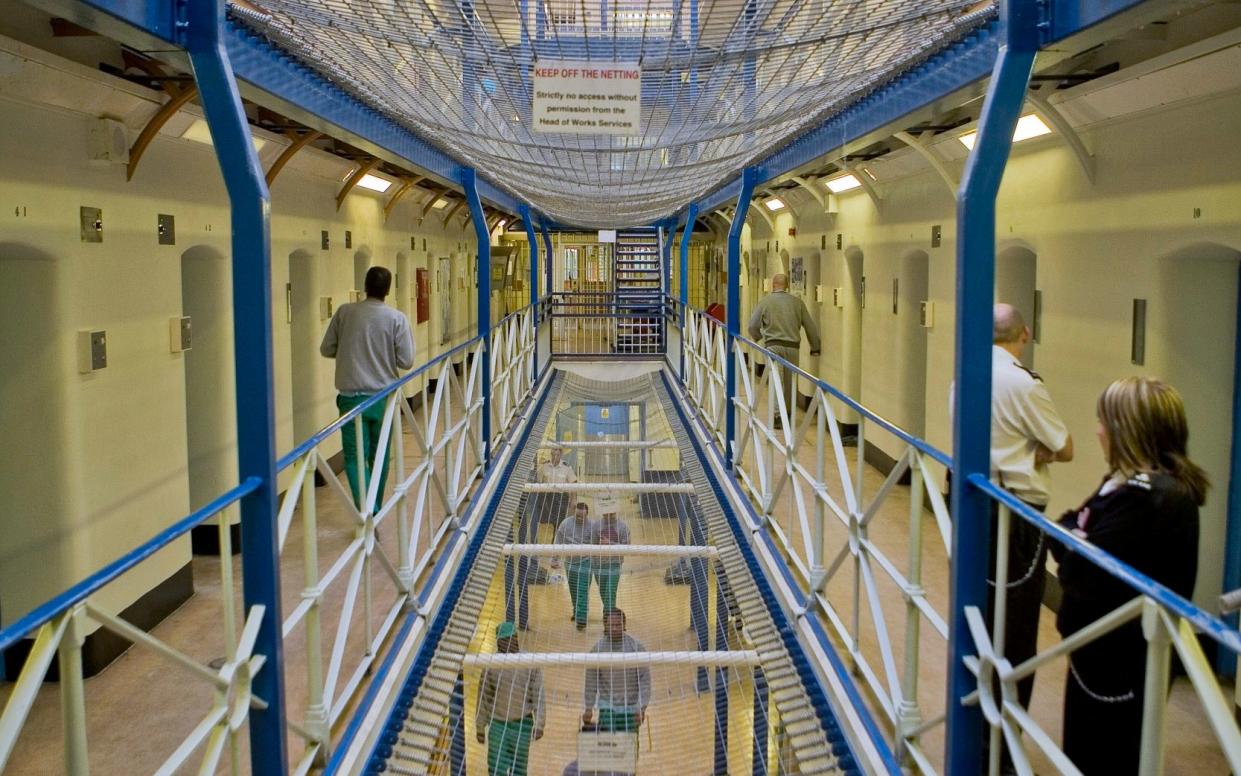Self-harm among women prisoners rises during pandemic as they are denied sight of their children, watchdogs find

Self-harm has increased among women prisoners during the coronavirus pandemic and some have been denied the chance to see their children for two months, inspectors have said.
Inspectors, who carried out scrutiny visits on May 19, said they were troubled by the impact of new restrictions at three women's prisons - Bronzefield, Eastwood Park and Foston Hall.
The restrictions were aimed at helping to control the spread of the virus but the inspectors were concerned about the suspension of specialist support for some of the most vulnerable women.
Peter Clarke, the Chief Inspector of Prisons, said: "We found that self-harm had increased from the high levels seen prior to the restrictions being implemented."
Despite enhanced welfare checks and support in place at Bronzefield and Eastwood Park, Mr Clarke said: "We were concerned about the impact of the very sudden withdrawal of a range of interventions from a small number of prisoners with very high levels of need."
An inspectors' report noted: "Despite the work of staff, the very restricted regime meant prisoners at risk of self-harm felt isolated from others and craved more human contact."
The suspension of visits had also had a particularly acute impact. Mr Clarke said: “We spoke to women who had not seen their children for two months and were understandably frustrated by the delays in supplying any video calling provision.”
Up to 40 per cent women who were released did not have any accommodation to go to and were effectively homeless on the day of their being freed. The lack of accommodation had also undermined attempts to release inmates early.
He said: "Since the start of the restrictions, 40 per cent of prisoners released from Bronzefield and Eastwood Park and 20 per cent of those release from Foston Hall had no accommodation on the day of their release."
The inspectors' report on the scrutiny visits added: "This was not a safe way to release potentially vulnerably prisoners, especially during a pandemic."
Juliet Lyon, chair of the advisory panel on deaths and custody, said: “It is a cruel irony that so few pregnant women and mothers and babies have been granted early release, in part due to difficulties in finding safe housing for them while, having reached the end of their sentence, so many women have been released from prison homeless and vulnerable under Covid-19.
“Ministers have a duty to take active steps to protect life and securing safe accommodation for women on release from prison has to be one of them.”
A Prison Service spokesman said: “The decision to impose restrictions on daily life in our prisons was not taken lightly but has undoubtedly helped save lives and protect the NHS from the potentially disastrous consequences of widespread local outbreaks.
“We were alive to the possibility of self-harm increasing among this vulnerable group and immediately introduced daily welfare checks and extra support from psychologists to support those most at risk.”


